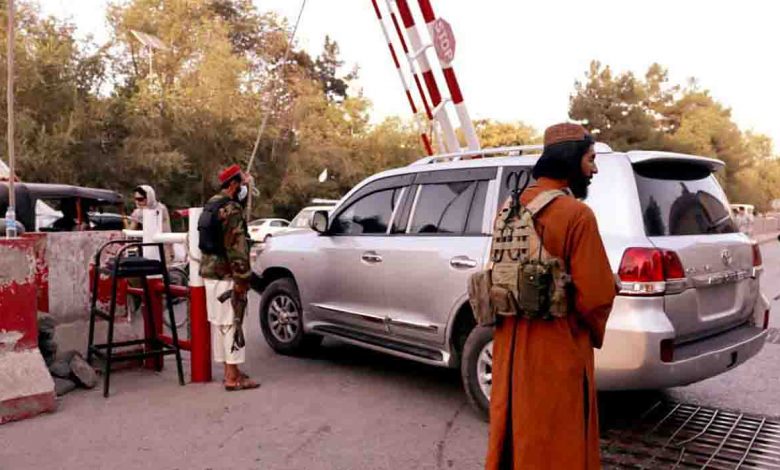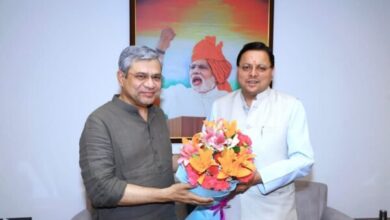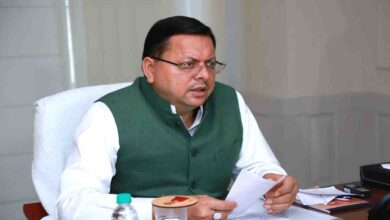Terror from Af will be dealt: CDS

Thursday, 26 August 2021 | PNS | New Delhi
General Rawat urges Quad to boost synergy in global war on terror, says India surprised by rapid Af change
India had anticipated the Taliban takeover of Afghanistan but was “surprised” by the speed of the turn of events, Chief of Defence Staff (CDS) General Bipin Rawat said here on Wednesday. He also said the country is ready to deal with the possibility of terrorist activity after the latest developments there.
His observations came a day ahead of the all-party meeting called by the Centre to brief various political leaders about the situation in Afghanistan. External Affairs Minister S Jaishankar will brief the leaders.
Rawat asserted that any possible terrorist activity flowing out of Taliban-controlled Afghanistan and finding its way into India will be firmly dealt with. He also suggested that the Quad nations should boost cooperation in the global war on terrorism.
He also said India was anticipating a Taliban takeover of Afghanistan but the timelines of the latest developments have surprised it, noting that the outfit has not changed over the past 20 years.
“From India’s perspective, we were anticipating a Taliban takeover of Afghanistan. We were concerned about how the terrorist activities from Afghanistan could overflow into India,” Rawat said.
“And to that extent, our contingency planning had been ongoing and we are prepared for it. Yes, the timelines certainly surprised us. We were anticipating this thing happening maybe a couple of months down the line,” he added.
The CDS made these remarks while addressing an interactive session, with Commander of the US Indo-Pacific Command Admiral John Aquilino, organised by the Observer Research Foundation.
Aquilino referred to challenges that India has been facing, specifically with regard to “sovereignty on the Line of Actual Control” as well as the “foundational security concerns” in the South China Sea region, in a clear reference to China’s aggressive behaviour.
On the latest developments in Afghanistan, Rawat said India is committed to ensuring a terrorist-free environment in the region.
“As far as Afghanistan is concerned, we will make sure that any activity likely to flow out of Afghanistan and then find its way into India will be dealt with in the manner in which we have been dealing with terrorism in our country,” he said.
“I think if any other support can be forthcoming from the Quad nations, in at least identifying the terrorists and getting some intelligence input to fight this global war on terrorism, I think that will be welcomed,” he said.
The Quad comprises India, the US, Japan and Australia.
The CDS said New Delhi was concerned about the possibility of terrorist activities from Afghanistan impacting India and contingency plans were put into place to deal with such a challenge.
Asserting that the Taliban has not changed in the last 20 years and only its partners have changed, he said “It is pretty much the same; it is the same Taliban that was there 20 years ago. News reports and reports from the expats who have come from there are all telling us the kind of activities the Taliban is into. All that has happened is that the partners have now changed. It is the same Taliban with different partners.
His comments came in the backdrop of mounting concerns over the possibility of rise in activities of various terror groups, including the Lashkar-e-Toiba and Jaish-e-Mohammed from Taliban-controlled Afghanistan.
Aquilino talked about challenges facing the Indo-Pacific, noting that it is the most consequential region for the future.
“The attack on the rules-based international order that allows freedom of navigation for all is certainly one of the most critical challenges,” he said
“That freedom of navigation allows two-thirds of the world’s economy to flow through the South China Sea. One-quarter of the world’s liquid natural gas flows through the area. It is critical for the prosperity of all the nations and when it is challenged and potentially confronted, that will negatively impact all the nations in the region,” Aquilino said. He described the challenges as the “foundational security concern”.
Earlier, Rawat and Aquilino discussed issues related to peace and security in the region. Bilateral defence cooperation was part of the agenda for the meeting. Aquilino also held meetings with the Tri-Service Chiefs, Defence Secretary Dr Ajay Kumar and External Affairs Minister S Jaishankar.
The US Commander began his visit by paying tribute to the fallen heroes by laying a wreath at the National War Memorial in New Delhi. He is on an official visit to India from October 24-26.






